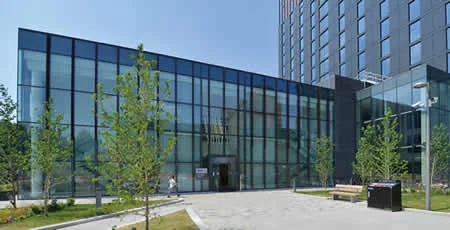In the Front Line
Retailers have responsibility to tackle aggression against workers
The UK government’s Retail Crime Action Plan represents a welcome, but long-overdue, introduction of more robust measures to protect retail workers. However, this alone won’t eradicate the epidemic of aggressive behaviour against staff.
Aggressive customer behaviour comes in different forms that can be placed broadly under three pillars — physical violence, verbal abuse and inappropriate contact or remarks.
While there seems to be a good understanding of how physical abuse is unacceptable, verbal abuse and inappropriate behaviour are considered grey areas, with many workers considering a degree of verbal abuse as 'part of the job'.
We saw a sharp increase in all these behaviours during the Covid-19 pandemic and alongside colleagues from the Health and Safety Executive and the German Federal Institute for Occupational Safety, we have been examining trends in violence and aggression following the pandemic. What we have found is that frontline workers, such as those in retail, waste management, and local government, have experienced increased and new forms of aggressive acts from members of the public.
Sharp Increase
In workshops with organisational health and safety representatives participants discussed how rates of violence and aggression increased sharply during and following the pandemic, including an increased use of weapons. Representatives also discussed how the pandemic brought about ‘new’ forms of mistreatment, such as spitting or coughing on workers, which is both physically and mentally harmful.
One way to explain these rising trends is through the power asymmetries that exist between frontline staff and customers. The dominant social narrative, that ‘the customer is always right’, considers the customer as more powerful and puts the worker in a subservient position, which invites more hostility towards shop staff.
Moreover, there were new rules implemented during the pandemic, such as social distancing or product rationing, that were unclear and changed regularly. Adhering to new rules may have been particularly frustrating for members of the public, alongside other stressors brought on by the pandemic.
According to classic psychological theories, frustration is likely to lead to aggressive behaviour, most likely directed at frontline workers who were most often the ones tasked with reinforcing new rules. The power asymmetries between customer and worker may have facilitated this aggression, as customers may feel more entitled to express their frustration at those who they believe should be ‘serving them’.
Aggressive behaviours have become normalised and dealing with them is now considered part of the job.
Aggressive behaviours
As we say, aggressive behaviours have become normalised and dealing with them is now considered ‘part of the job’. As a result, workers may not consider some of the less overt but equally dangerous forms of aggression, particularly verbal abuse, and inappropriate acts, severe enough to report.
This is despite research consistently showing that being a target of aggression is associated with worse mental and physical health, poor performance, and employees leaving their jobs or careers early. Moreover, the effects of mistreatment don’t end when you leave work.
Our workshops found that workers’ home lives were affected and some were afraid of running into their aggressors in public, a trend that is unfortunately more common in smaller communities.
Workers may also be concerned about being labelled a problematic employee if they make multiple complaints.
Duty of care
Retailers have a duty of care towards their employees, and must create a culture where staff feel confident speaking up about all types of aggression. Reporting is key because it gives employers and professional bodies an idea of the scope of the problem and can help them to identify and address factors causing aggression.
In some cases, this is already obvious. Hostile behaviour is often borne out of frustration, so taking additional measures to prevent long queues and waiting times during the busiest periods, for example, can help to protect workers.
When such episodes occur, managers should encourage employees to report the issue and support the coping process. Completing reports can be stressful, so taking these complaints seriously, being empathetic, and showing a willingness to act can make a real difference. Managers should implement reporting systems that are accessible to all employees and allow for reporting to be done during work hours, so that employees don’t have to work overtime to file reports.
Gain for employers
Staff are not the only ones to benefit from better policies and practices. Employers also gain as employees are less likely to take sickness absence or quit, so reducing costs — more important than ever at a time where staff shortages are well publicised.
The Retail Crime Action Plan is an acknowledgement of the severity of the problem. It provides an overarching framework to tackle retail crime, but it should also be a prompt for retailers taking more measures in their stores to protect staff.
Listen to podcast






